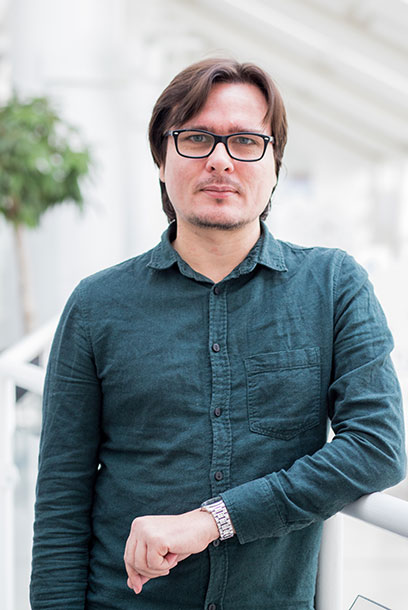Research for more efficient sustainable heating
District heating is a sustainable alternative for heating households. In a recently published licentiate thesis from Halmstad University, doctoral student Shiraz Farouq presents data-driven methods for more cost-effective and climate friendly district heating networks.

”My research will enable district heating utilities to use their renewable energy sources efficiently.”
Shiraz Farouq
District heating is one of the most sustainable and cost-effective methods of heating today. This is because it, to a large extent, reuses heat energy that would otherwise go wasted. Examples of such energy sources include excess heat from industries and combustion of domestic waste. However, such energy waste is expected to decrease in the future, both in quantity and content. This would leave district heating utilities with little room for any energy inefficiency, if they do not want to compromise their client’s comfort. Thus, the challenge is to make the current district heating networks more energy efficient, and this is where Shiraz Farouq's research can make a difference.
Collected data creates a pattern

Shiraz Farouq.
Today, ineffective and incorrect behaviour of substations in district heating networks leads to substantial energy losses. Shiraz Farouq, a doctoral student at the School of Information Technology, has developed models for detecting such substations by identifying various patterns using state-of-the-art statistical and machine learning algorithms. One of these models is based on the idea of collective monitoring, where the behaviour of each substation in a network is tracked by a group of other similar substations. Any substation that does not behave in accordance with its tracking group provides a basis to believe that something is wrong.
Shiraz Farouq's research will hopefully lead to more efficient ways of using district heating by quickly detecting energy inefficient substations. This contributes to increased sustainability, cost efficiency and the development of future smart cities. In that context, the research has a positive impact on the environment, economy and the society.
“My research will enable district heating utilities to use their renewable energy sources efficiently”, says Shiraz Farouq.
Collaboration with the heating industry
Shiraz Farouq's research is done in collaboration with the Swedish company Öresundskraft. It is also from Öresundskraft that the largest amount of data for the research comes. In addition to this collaboration, Shiraz Farouq has also received academic and technical assistance from the Department of Energy and Process Engineering at the Norwegian University of Science and Technology (NTNU).
In the future, Shiraz Farouq plans to continue his research towards a doctoral thesis. He wants to continue to improve the current diagnostic capacity in district heating. Right now, district heating utilities mostly rely on rule-based thresholds to detect energy inefficient substations. However, this practice usually leads to a large number of false alarms which most district heating utilities find difficult to cope with, both administratively and technically.
“Today, the majority of diagnostic functions are created by human experts in a time-consuming and expensive manner. I will therefore continue my research on improving the efficiency of the district heating networks with the help of intelligent algorithms. In fact, this is also a requirement if we want to create future smart cities”, says Shiraz Farouq.
Text: Anton Salinas and Louise Wandel
Photo: Anton Salinas
Top illustration: iStock
About the licentiate thesis
The licentiate seminar took place at Halmstad University on November 26.
- Opponent: Ulf Johansson, Professor, Jönköping University
- Examiner: Mark Dougherty, Professor, Halmstad University
- Supervisors: Stefan Byttner, Mohamed-Rafik Bouguelia and Slawomir Nowaczyk, Halmstad University
Read more
Shiraz Farouq is part of the Center for Applied Intelligent Systems Research (CAISR) within the research environment Embedded and Intelligent Systems (EIS) at the School of Information Technology.
Center for Applied Intelligent Systems Research, CAISR
Research Environment Embedded and Intelligent Systems, EIS
The research about efficient district heating is well in line with Halmstad University profile area Smart Cities and Communities.
Profile area Smart Cities and Communities
Artikel på svenska: Forskning för en effektivare hållbar uppvärmning External link.
External link.


